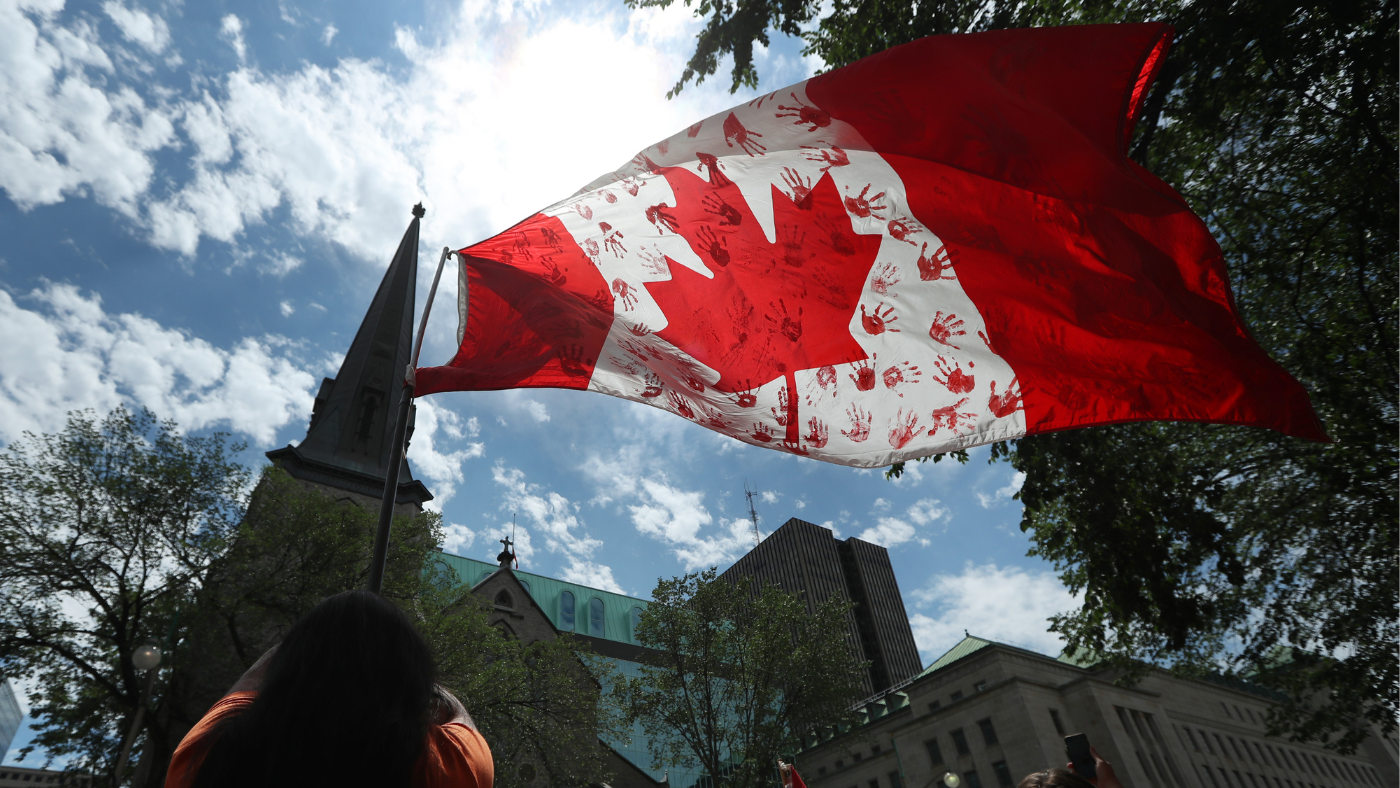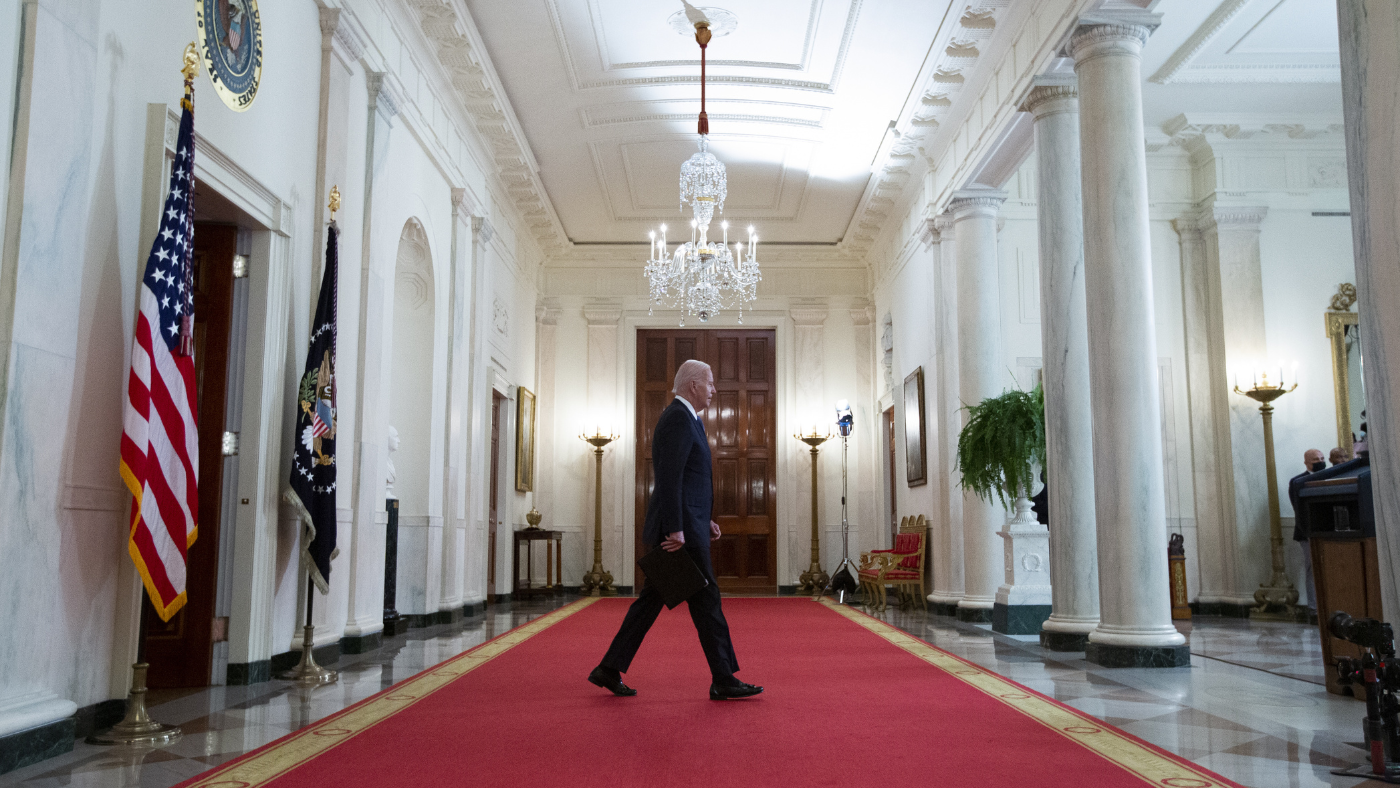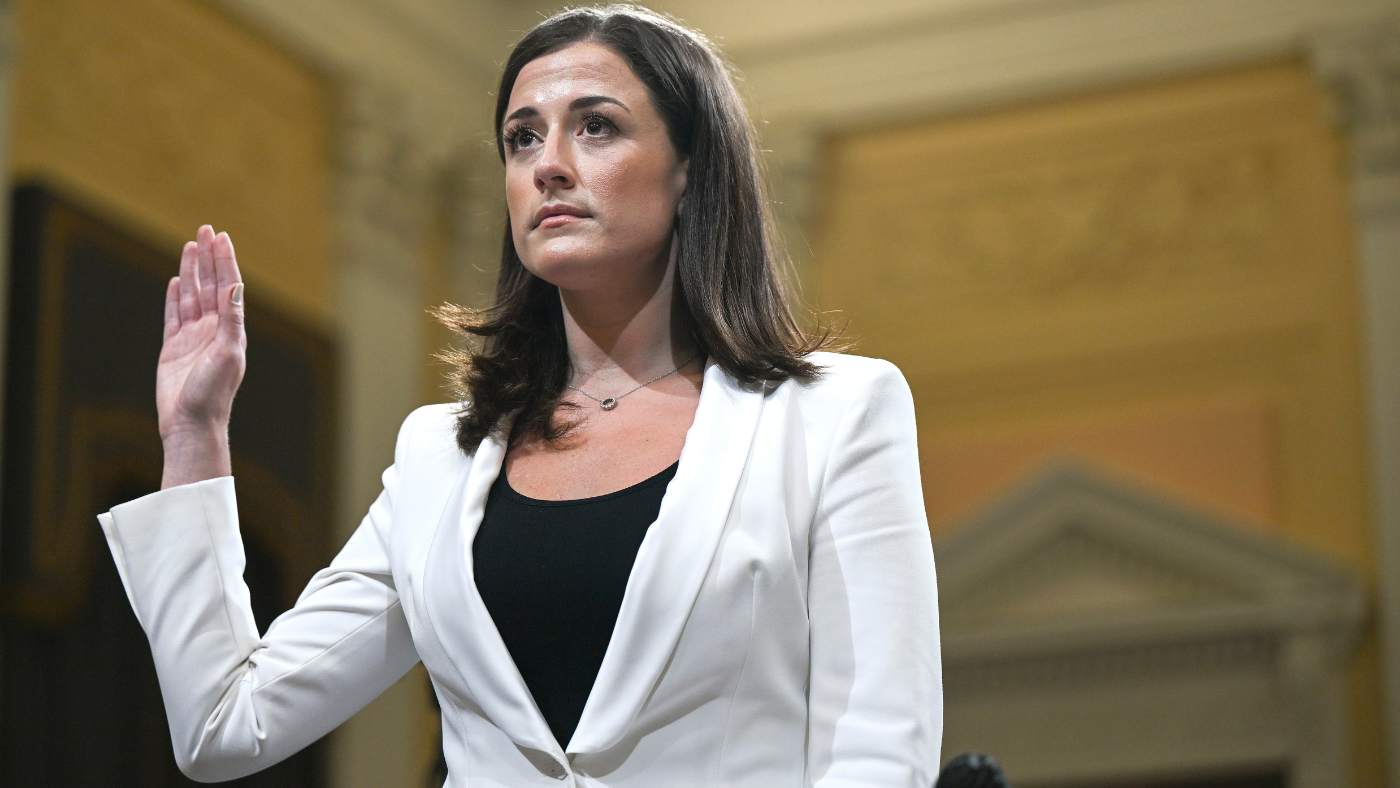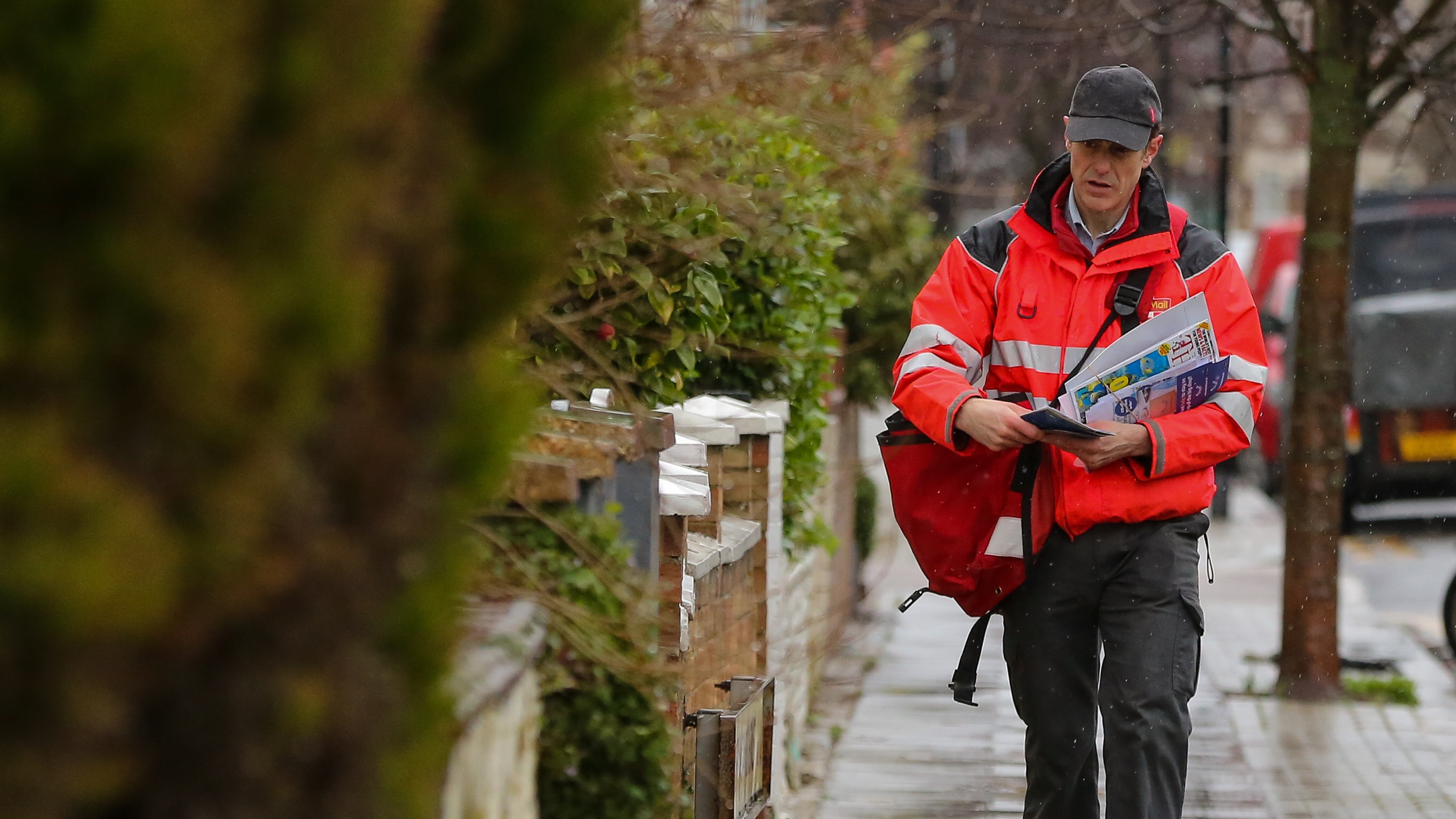‘Simone Biles insisted on her right not to be hurt’
Your digest of analysis and commentary from the British and international press

- 1. We’re slowly discovering the murky side of elite sport – thanks to women speaking out
- 2. The Marble Arch mound is heir to a line of shaky follies
- 3. The world needs help in going back to school
- 4. Britain’s criminal approach to drugs
- 5. You could power a wind turbine with all Boris Johnson and Allegra Stratton’s hot air on the climate crisis
A free daily email with the biggest news stories of the day – and the best features from TheWeek.com
You are now subscribed
Your newsletter sign-up was successful
1. We’re slowly discovering the murky side of elite sport – thanks to women speaking out
Gaby Hinsliff in The Guardian
on sporting abuse
“A growing willingness among younger women to reveal the darker side of elite sport is shining an uncomfortable light on things too often brushed under the carpet in pursuit of medals and glory,” writes Gaby Hinsliff in The Guardian. “The scandal engulfing USA Gymnastics – after its squad doctor Larry Nassar was convicted in 2017 of systematically sexually abusing young athletes in his care – has cast a particularly long shadow over these Games, but they’re not alone,” she adds. “A recent survey by the World Players Association found 13% of elite athletes across all disciplines experienced some form of sexual abuse as children in sport, while half reported emotional abuse.” In withdrawing from the team all-round gymnastics, US gymnast Simone Biles was “insisting on her right not to be hurt”, she adds. A right “denied to so many” under Lassar’s care.
The Week
Escape your echo chamber. Get the facts behind the news, plus analysis from multiple perspectives.

Sign up for The Week's Free Newsletters
From our morning news briefing to a weekly Good News Newsletter, get the best of The Week delivered directly to your inbox.
From our morning news briefing to a weekly Good News Newsletter, get the best of The Week delivered directly to your inbox.
2. The Marble Arch mound is heir to a line of shaky follies
Stephen Bayley in The Times
on ludicrous landmarks
“The great thing to remember about cities is that they are impermanent. Even the landmarks move,” writes Stephen Bayley in The Times. Indeed, “Marble Arch was designed by John Nash as the ceremonial entrance to Buckingham Palace but was relocated north to Tyburn where criminals were once hanged,” he explains. “It is now solemn witness to other atrocities, namely the commercial sewer that is Oxford Street.” The “already infamous” Marble March mound – if “viewed charitably” – fits into a “national tradition of follies: high concepts made of low materials, designed to trigger delight”. It is a “pleasant idea, poorly executed”. However, “happily, summer’s lease has a very short date”, he concludes.
A free daily email with the biggest news stories of the day – and the best features from TheWeek.com
3. The world needs help in going back to school
The Financial Times Editorial Board
on the next crisis
“As the supply of vaccines and improved treatments begin to ease the burden of coronavirus in richer countries, political leaders are belatedly stepping up donations to help poorer ones out of the immediate health crisis,” says the Financial Times. “Many more now need to pay urgent attention to a longer-term crisis exacerbated by the pandemic”, namely lost education. According to some estimates, “24 million school-aged children in lower and middle-income countries may never return to the classroom, with many pushed into work and early marriage”, the paper warns. And “hundreds of millions more who are going back will struggle to catch up”.
4. Britain’s criminal approach to drugs
Ian Birrell on UnHerd
on a losing battle
“Our nation’s politicians have long been guilty of an inflated sense of exceptionalism,” writes Ian Birrell on UnHerd. “But there is one area in which Britain indisputably leads Europe,” he adds, “the rate of citizens succumbing to drug-related deaths.” Birrell says that these deaths are “the predictable result of political failure” as “for decades, politicians have been hooked on prohibition”. He argues that political leaders “have pushed the idea that use of illicit drugs should be punished and persisted with suggestions they can stifle flows of heroin, cocaine and cannabis, rather than accepting there is strong demand and focusing on harm reduction”. “The war on drugs has been a dismal failure” and “I doubt cartel bosses and drug barons are quaking with fear over Johnson’s drug bash”. Birrell goes so far as to say “it is bordering on criminal to see politicians stick to their bungling stance as the death toll mounts”.
5. You could power a wind turbine with all Boris Johnson and Allegra Stratton’s hot air on the climate crisis
Andy Parsons in The Independent
on a comms disaster
“This week, Boris Johnson’s Cop26 spokesperson Allegra Stratton decided she wanted to communicate with the widest audience she could possibly manage,” writes Andy Parsons in The Independent. “She fulfilled her aim admirably when she published an article outlining four micro-steps people could take to reduce their carbon footprint.” Stratton’s plan “suggested not rinsing dishes before putting them in the dishwasher”, as well as “putting bread in the freezer to help it last longer”. And “needless to say, it went viral with almost universal condemnation”. However, Parsons suggests that mocking her approach may be unfair. After all, “talking about climate change and then trivialising it by suggesting freezing bread is the equivalent of talking about crime and then trivialising it by suggesting hi-vis chain gangs”, he says. “So it may well be that Stratton is the ideal person to be Johnson’s spokesperson.”
-
 How the FCC’s ‘equal time’ rule works
How the FCC’s ‘equal time’ rule worksIn the Spotlight The law is at the heart of the Colbert-CBS conflict
-
 What is the endgame in the DHS shutdown?
What is the endgame in the DHS shutdown?Today’s Big Question Democrats want to rein in ICE’s immigration crackdown
-
 ‘Poor time management isn’t just an inconvenience’
‘Poor time management isn’t just an inconvenience’Instant Opinion Opinion, comment and editorials of the day
-
 ‘The UK’s malaise will not end with the Prime Minister’s exit’
‘The UK’s malaise will not end with the Prime Minister’s exit’Instant Opinion Your digest of analysis from the British and international press
-
 ‘Police tactics are not getting worse, they are simply being filmed’
‘Police tactics are not getting worse, they are simply being filmed’Instant Opinion Your digest of analysis from the British and international press
-
 ‘G7 leaders missed a golden opportunity’
‘G7 leaders missed a golden opportunity’Instant Opinion Your digest of analysis from the British and international press
-
 ‘It takes some soul searching to celebrate Canada Day’
‘It takes some soul searching to celebrate Canada Day’Instant Opinion Your digest of analysis from the British and international press
-
 ‘Breakthrough on abortion rights could be there if Biden reaches for it’
‘Breakthrough on abortion rights could be there if Biden reaches for it’Instant Opinion Your digest of analysis from the British and international press
-
 ‘If only Mark Meadows had even half Cassidy Hutchinson’s courage’
‘If only Mark Meadows had even half Cassidy Hutchinson’s courage’Instant Opinion Your digest of analysis from the British and international press
-
 ‘Boris Johnson measures success in biceps rather than brain power’
‘Boris Johnson measures success in biceps rather than brain power’Instant Opinion Your digest of analysis from the British and international press
-
 ‘Asking posties to act as community watchmen is an inspired idea’
‘Asking posties to act as community watchmen is an inspired idea’Instant Opinion Your digest of analysis from the British and international press